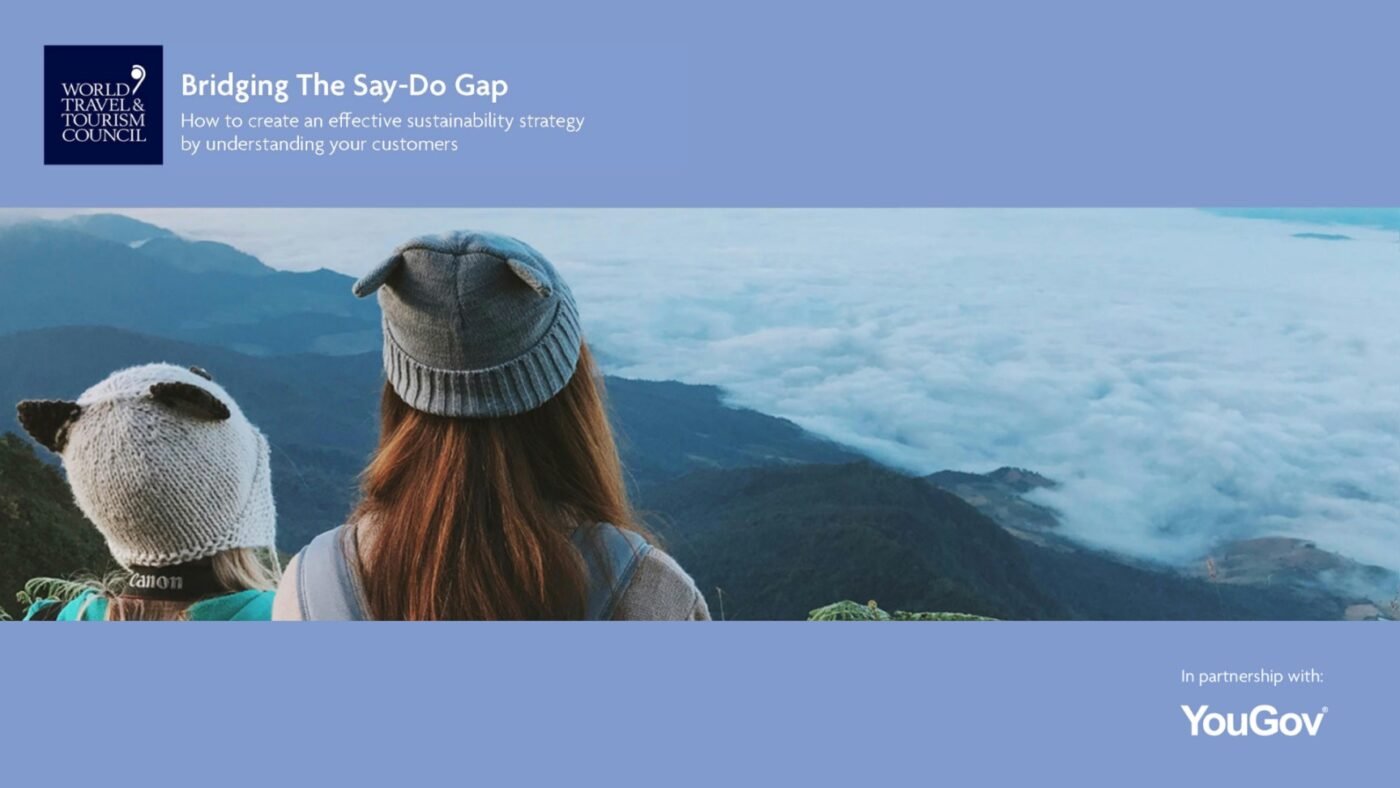
The World Travel & Tourism Council (WTTC) unveiled its newest report, exploring the essential hole between travellers’ need for sustainable choices and their precise behaviour. Launched at FITUR 2025, Madrid, the report Bridging the Say-Do Gap: How to Create an Effective Sustainability Strategy by Knowing Your Customers was developed in collaboration with WTTC information associate YouGov.
The report explores the disconnect between what travellers say about sustainability and the alternatives they in the end make.
It supplies actionable steerage to Travel & Tourism companies on how they will deal with this hole by providing options that make sustainable travel each extra accessible and extra engaging, in the end balancing financial development and environmental duty.
The examine, drawing on a survey of greater than 10,000 respondents, categorised travellers into six shopper segments, starting from the eco-conscious “Hopeful Worriers” to the disengaged “Climate Change Agnostics”. Each group comes with distinctive behaviours, priorities, and obstacles to choosing sustainable decisions.
Understanding these various views is important for companies to craft efficient sustainability methods that resonate with their viewers and drive actual influence.
According to the information, cost and high quality stay the dominant priorities for travellers, outweighing sustainability concerns. Across all shopper segments, greater than 50% say cost is a very powerful issue influencing buying selections, whereas round 30% prioritise high quality.
In stark distinction, sustainability is a main issue for less than a small minority, starting from 11% to 7%, even among the many most environmentally acutely aware teams.
An absence of visibility additionally stays a big barrier to progress. Over 10% of respondents reported no publicity to sustainability messaging or info via any channel, together with mainstream media, social platforms, or community-driven initiatives.
Julia Simpson, WTTC President & CEO, mentioned: “Travellers care about sustainability but when buying travel, cost and quality are king. Customers expect businesses to create affordable sustainable options. But many WTTC companies inspire change – whether that is regrowing coral reefs or reducing food waste. Customers engage with brands that have strong values.
“I am delighted to collaborate with YouGov for such a crucial piece of work. By closing the say-do gap, we not only protect the planet but ensure more rewarding experiences for customers and a brighter and more resilient future for our planet.”
Research was additionally carried out by WTTC Member, Trip.com, culminating in The Sustainable Travel Consumer Report 2024. Trip.com’s report helps WTTC findings, noting the significance of cost and making sustainability hassle-free, encouraging customers in direction of extra sustainable motion.
Business Recommendations
WTTC’s report presents seven key suggestions to assist the trade bridge this divide, calling on companies to steer by instance, partnering the place potential with different companies and governments on sustainability initiatives.
To drive actual change, the report recommends highlighting the financial and private advantages of sustainable travel, guaranteeing eco-friendly choices are easy and handy for customers, and introducing tiered reward programmes to encourage motion in any respect ranges.
Tailored advertising that speaks on to the values and desires of particular person customers has been proven to considerably enhance engagement throughout totally different segments. Designing out unsustainable choices to make sustainability the default selection can facilitate the decision-making course of and enhance the general expertise.
Many Travel & Tourism firms are actively adopting sustainable practices and speaking them to customers.
Intrepid Travel prominently labels journey itineraries with their carbon influence and offsets
emissions mechanically. Iberostar leverages AI expertise to cut back meals waste in its inns and prioritises underutilised fish shares. Hilton has geared up over 1,800 inns with EV charging factors, with practically a 3rd of its EMEA properties powered fully by renewable power.
As local weather motion turns into an crucial moderately than an choice, this report equips companies with the instruments and insights they should thrive in a quickly altering world.
WTTC urges all Travel & Tourism enterprise leaders to leverage this report back to encourage innovation and chart a sustainable path ahead.

